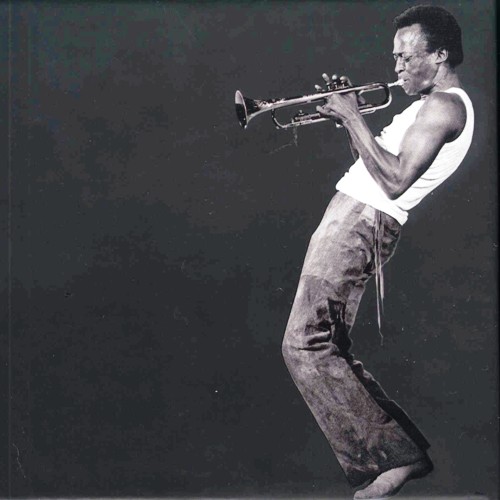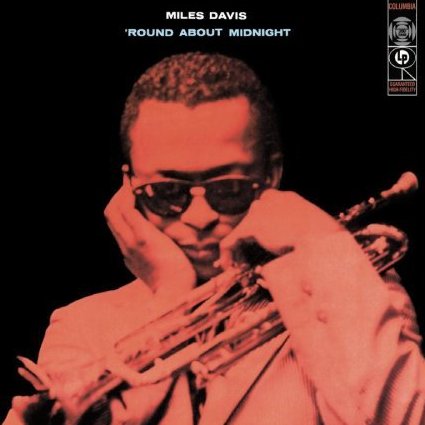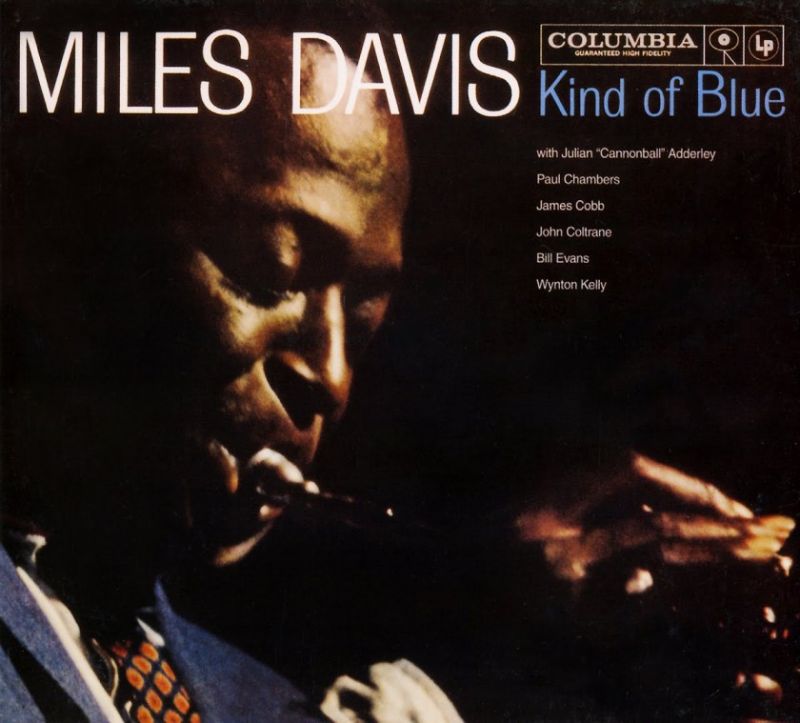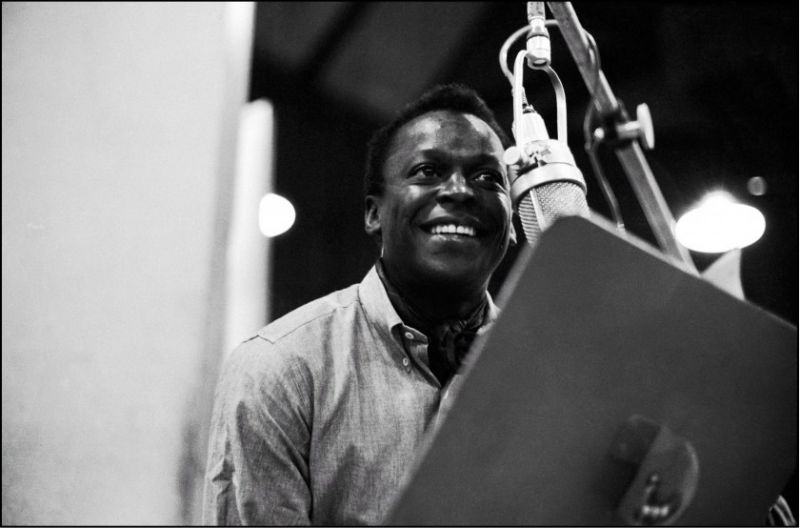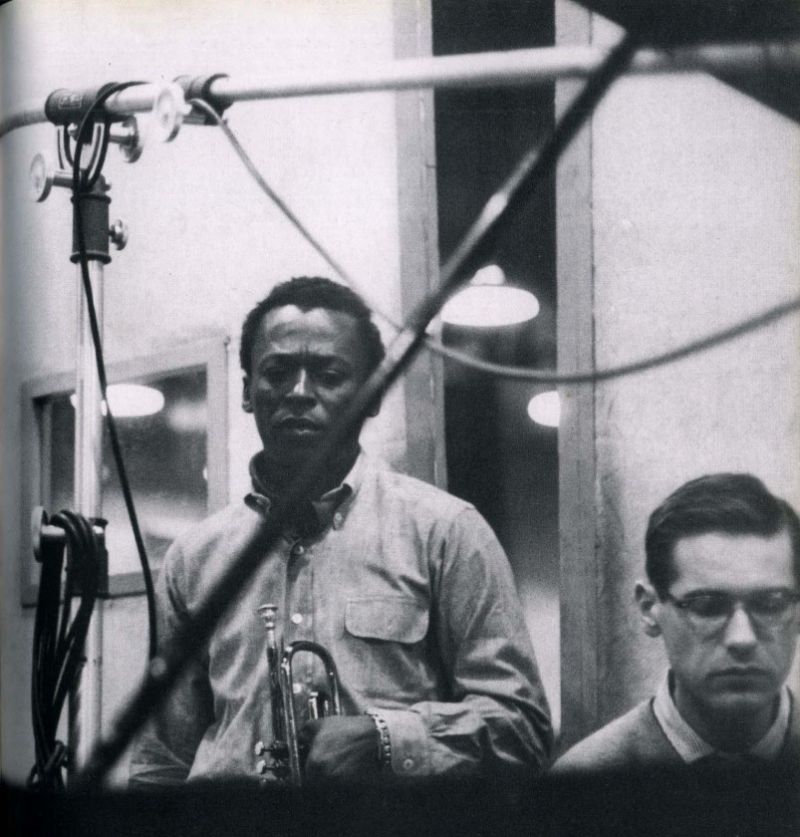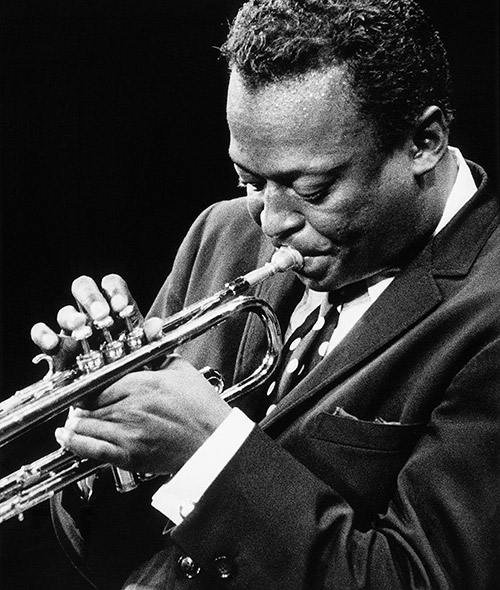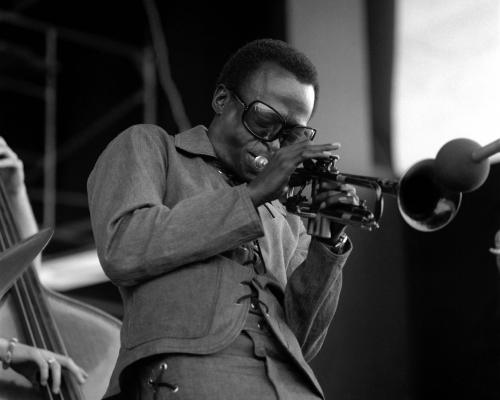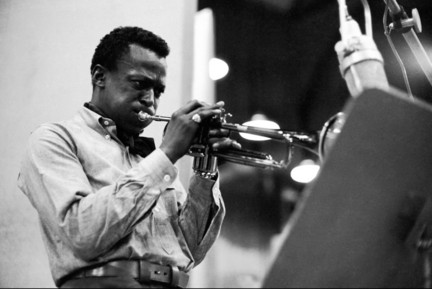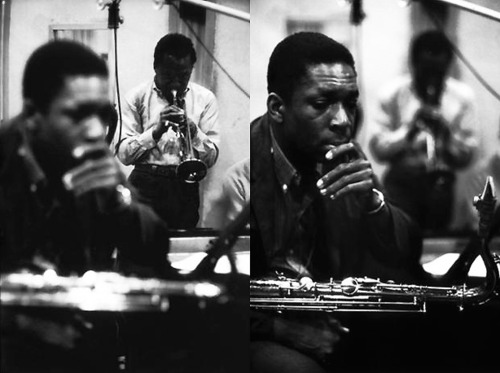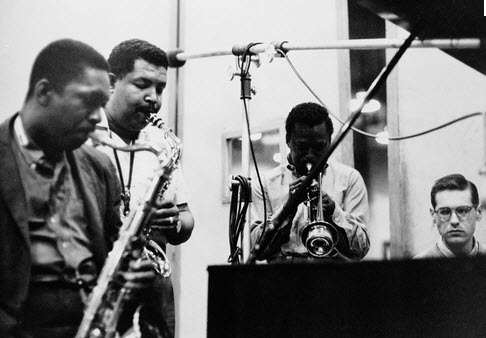
“Don’t play what’s there; play what’s not there.”
― Miles Davis“Good music is good no matter what kind of music it is.”
― Miles Davis
From Wikipedia:
| Birth name | Miles Dewey Davis III |
|---|---|
| Born | May 26, 1926 Alton, Illinois, United States |
| Died | September 28, 1991 (aged 65) Santa Monica, California, United States |
| Genres | Jazz, hard bop, bebop, cool jazz, modal, fusion, third stream, jazz-funk, jazz rap |
| Occupations | Bandleader, composer, trumpeter, artist |
| Instruments | Trumpet, flugelhorn, piano,organ |
| Years active | 1944–1975, 1980–1991 |
| Labels | Capitol Jazz/EMI,Columbia/CBS, Warner Bros.Dial Records |
| Associated acts | Billy Eckstine, Charlie Parker,Miles Davis Quintet, Gil Evans |
| Website | www.milesdavis.com |
Miles Dewey Davis III (May 26, 1926 – September 28, 1991) was an American jazz musician, trumpeter, bandleader, and composer. Widely considered one of the most influential musicians of the 20th century, Miles Davis was, with his musical groups, at the forefront of several major developments in jazz music, including bebop, cool jazz, hard bop, modal jazz, and jazz fusion.
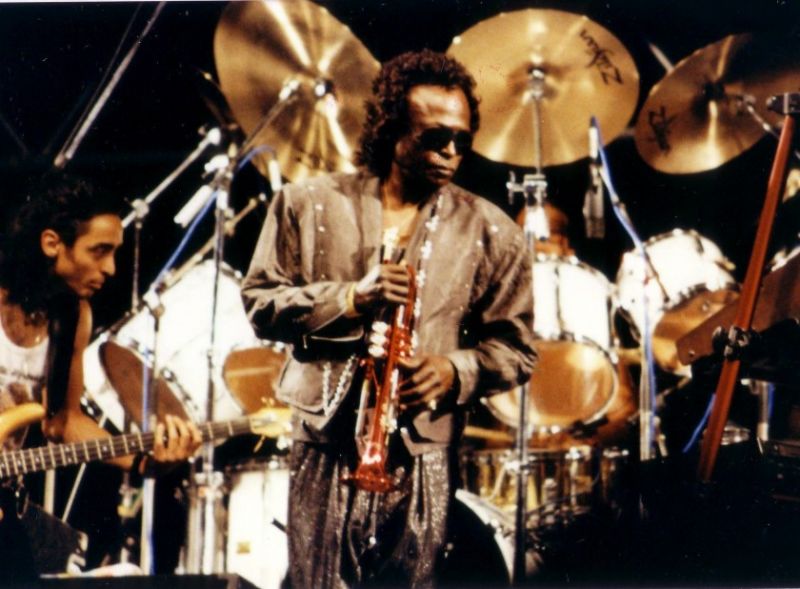
On October 7, 2008, his 1959 album Kind of Blue received its fourth platinum certification from the Recording Industry Association of America (RIAA), for shipments of at least four million copies in the United States. Miles Davis was inducted into the Rock and Roll Hall of Fame in 2006. Davis was noted as “one of the key figures in the history of jazz”. On December 15, 2009, the U.S. House of Representatives passed a symbolic resolution recognizing and commemorating the album Kind of Blue on its 50th anniversary, “honoring the masterpiece and reaffirming jazz as a national treasure.”
From allmusic.com – William Ruhlmann:
Throughout a professional career lasting 50 years, Miles Davis played the trumpet in a lyrical, introspective, and melodic style, often employing a stemless Harmon mute to make his sound more personal and intimate. But if his approach to his instrument was constant, his approach to jazz was dazzlingly protean. To examine his career is to examine the history of jazz from the mid-’40s to the early ’90s, since he was in the thick of almost every important innovation and stylistic development in the music during that period, and he often led the way in those changes, both with his own performances and recordings and by choosing sidemen and collaborators who forged new directions. It can even be argued that jazz stopped evolving when Davis wasn’t there to push it forward.
… read more over @ allmusic.com
So What:
Legacy, influence & awards:
Miles Davis is regarded as one of the most innovative, influential and respected figures in the history of music. He has been described as “one of the great innovators in jazz”. The Rolling Stone Encyclopedia of Rock & Roll noted “Miles Davis played a crucial and inevitably controversial role in every major development in jazz since the mid-’40s, and no other jazz musician has had so profound an effect on rock. Miles Davis was the most widely recognized jazz musician of his era, an outspoken social critic and an arbiter of style—in attitude and fashion—as well as music”. His album Kind of Blue is the best-selling album in the history of jazz music. On November 5, 2009, Rep. John Conyers of Michigan sponsored a measure in the United States House of Representatives to recognize and commemorate the album on its 50th anniversary. The measure also affirms jazz as a national treasure and “encourages the United States government to preserve and advance the art form of jazz music.” It passed, unanimously, with a vote of 409–0 on December 15, 2009.
His approach, owing largely to the African American performance tradition that focused on individual expression, emphatic interaction, and creative response to shifting contents, had a profound impact on generations of jazz musicians.
In 1986, the New England Conservatory awarded Miles Davis an Honorary Doctorate for his extraordinary contributions to music. Since 1960 the National Academy of Recording Arts and Sciences (NARAS) has honored him with eight Grammy Awards, a Grammy Lifetime Achievement Award, and three Grammy Hall of Fame Awards. In 2010, Moldejazz premiered a play called Driving Miles, which focused on a landmark concert Davis performed in Molde, Norway, in 1984.
All Blues – 1964:
- Winner; Down Beat Reader’s Poll Best Trumpet Player 1955
- Winner; Down Beat Reader’s Poll Best Trumpet Player 1957
- Winner; Down Beat Reader’s Poll Best Trumpet Player 1961
- Grammy Award for Best Jazz Composition Of More Than Five Minutes Duration for Sketches of Spain (1960)
- Grammy Award for Best Jazz Performance, Large Group Or Soloist With Large Group for Bitches Brew (1970)
- Grammy Award for Best Jazz Instrumental Performance, Soloist for We Want Miles (1982)
- Sonning Award for Lifetime Achievement In Music (1984; Copenhagen, Denmark)
- Doctor of Music, honoris causa (1986; New England Conservatory)
- Grammy Award for Best Jazz Instrumental Performance, Soloist for Tutu (1986)
- Grammy Award for Best Jazz Instrumental Performance, Soloist for Aura (1989)
- Grammy Award for Best Jazz Instrumental Performance, Big Band for Aura (1989)
- Grammy Lifetime Achievement Award (1990)
- Australian Film Institute Award for Best Original Music Score for Dingo, shared with Michel Legrand (1991)
- Knight of the Legion of Honor (July 16, 1991; Paris)
- Grammy Award for Best R&B Instrumental Performance for Doo-Bop (1992)
- Grammy Award for Best Large Jazz Ensemble Performance for Miles & Quincy Live at Montreux (1993)
- Hollywood Walk of Fame Star (February 19, 1998)
- Rock and Roll Hall of Fame Induction (March 13, 2006)
- Hollywood’s Rockwalk Induction (September 28, 2006)
- RIAA Quadruple Platinum for Kind of Blue
- St. Louis Walk of Fame
I know what I’ve done for music, but don’t call me a legend. Just call me Miles Davis.
Album of the day: ‘Round Midnight (1956):
Other September 27:
Continue reading Today: Miles Davis passed away in 1991 22 years ago

